Peter Rollins's Blog, page 10
February 26, 2016
The Secret Life of Hands: On the Ethics of Retweeting Praise

In the book Insurrection, I tell the following story,
Every Sunday the pastor would stand at the front of his church and, with a booming voice, finish his rousing sermon with a plea,
“Each week I go to a nearby town and serve the poor, the oppressed and the downtrodden, what do YOU do? How do you show your compassion to those in need?”
People would applaud at the ministers closing remarks and everyone would wave him off at the end of the service as he hurried away in his little car.
The truth however was that each week he would go to a golf course and play a leisurely eighteen holes away from his congregation, family and friends.
This deception had been going on for years. But eventually it came to the attention of some angels. They were furious at his lies and reported the situation directly to God.
After a little consideration God said to the angels, “I will visit with this minister on Sunday and teach him a lesson he’ll never forget”.
Sure enough, next Sunday, God showed up at the church. Yet again the minister informed his congregation that he was going to go serve the poor. And again he went to the golf course. However this time was different, for this time God intervened. When the minister took his first shot the ball took off, flew through the air, bounced onto the green and dropped into the hole. The minister was amazed.
At the second hole the same thing happened. And the third. And the forth. Right through to the last hole.
With his last stroke the minister sliced the ball badly, but it curved around and, like all the others, found the hole in one.
All the while the angels in heaven watched what took place in utter disbelief. By the time God returned they shouted, “I thought you were going to punish the minister for all his lies, but instead you gave him the perfect round of golf!”
“That may be true”, replied God with a smile, “but ask yourself this, who’s he going to tell?”
In this story we’re confronted with the way in which many of us gain our value by having another witness our acts rather than through the acts themselves. The pastor in the story needs an audience on the sideline bearing witness to, and affirming, his achievements.
No-where is this phenomenon more blatant today than on social media platforms. For instance, on Twitter some public speakers obsessively retweet any compliment that is made about them, any comment that includes them, or any picture that shows them in a good light. Because this isn’t related to the promotion of something (the talk has already been given) the motivation would often seem to lie in the individuals deep seated need for recognition. Mimicking a type of homeopathic logic, the original compliment becomes stronger the more it is diluted around twitter, and so it has to be shared.
In Atheism for Lent we’ve been reading Feuerbach, and I’ve found myself struck by how deeply he grasps this human desire for recognition, along with its pitfalls. An insight that has been subsequently deepened and broadened by many of the thinkers who came after him. For Feuerbach, it’s very natural for us to want this type of recognition, indeed it is a necessary stage in development, but it signals a stage that we must move beyond if we ever want to enter into a healthier, more enriching life.
Here Feuerbach is expressing something that can help us understand the psychoanalytic notion of the cure. An important element of the cure lies in the realization that there is no audience to dance before, placate, or from which to evoke praise.
The cure is then deeply connected to the idea of becoming an ethical subject.
An ethical subject is one who takes responsibility for their actions; not doing things out of coercion, whether that involves punishment or reward.
A child, for instance, might be coerced into apologizing for something they did via a parental threat. But, insofar as the child acts due to a reward/punishment economy, they are not acting as a properly ethical subject. Rather they are a type of citizen under the law.
As we grow up, we don’t move beyond the punishment/reward economy but internalize it, so that the outside authority becomes an inner one. Insofar as we simply move from an external to an internal source of demand, we are not yet, properly speaking in the domain of the ethical.
This is one way of understanding the radical meaning of the biblical passage, “But when you give to the needy, do not let your left hand know what your right hand is doing.” Here it takes a step further than simply saying, “don’t show off in front of others.” It claims that we should not show off in front of ourselves, i.e. in front of the internal other who acts as a type of judge or cheerleader. This hints at a type of act that operates in much the same way as a heart beats.
The first ethical act, the act that forms the ethical subject, is then that of moving beyond the economy of law in both its external and internal forms.
Being an ethical subject does not mean being a subject who does ethical acts. It means being a subject who is able to do ethical acts. In other words, the ethical subject is the one who is also able to do properly unethical acts; even if there is a correlation between taking responsibility for ones actions – rather than outsourcing that responsibility onto a religious, political or moral authority – and empathy for ones neighbor.
One might say that, to be an ethical subject, is to be a subject who is able to embrace a way of life animated by the freedom of love rather than the rule of law.
Apart from struggling to become properly ethical (which is a huge struggle), those who feel the compulsion to put any good deed on social media, and retweet every kind word said to them, might find themselves in the same rocky boat as the preacher above: unable to enjoy a good round of golf without having to tell someone about it.
February 24, 2016
Entering the Wardrobe this April
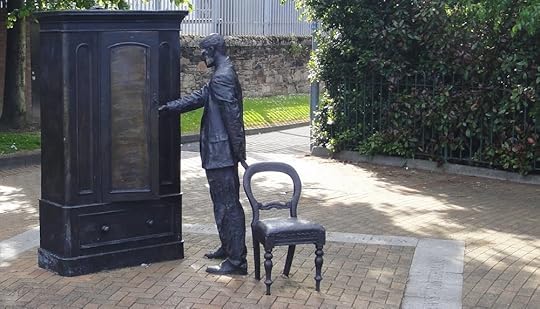
Recently I wrote about my interest in running an event in N.Ireland that would critically engage the work of C.S. Lewis. As he was born there, the event would include visiting some key sites including his family home, the forest that inspired Narnia, and the beautiful Old Inn where he spent many holidays, as well as his honeymoon with Joy.
When I mentioned this on my website, I’d no idea how much interest it would generate. It seems that Lewis is an beloved figure in the hearts of so many across the world. Partly because of his rich, other-worldly fiction, and partly because of the way he showed that the life of faith could engage the mind.
Well, I just can’t wait until 2017 to see if this idea might get off the ground, so I’ve decided to add a little sprinkling of Naria magic to my Wake Festival at the end of April this year. On one of the days we’ll visit his home, walk through the Narnia-esque forest, and gather around a roaring fire in the Old Inn where we’ll engage in talks and discussions reminiscent of The Inklings.
If you don’t know about my festival, let me just say that it’s been the highlight of my year since its inception in 2013. Each April, forty amazing people from all over the world join me in N.Ireland to socialize, drink, and conspire together about the themes I’ve developed in my work. In addition to this, there’s live music, art, movies, special guests, interviews and more. There are four days of activities, not including the pre-event drinks the night before and the post-event Festival of Fools that takes place the day after.
We’ve only six tickets left, and expect to sell out. If you’d like to find out more, click here.
February 22, 2016
Mars Hill, Grand Rapids, MI
February 17, 2016
C.S. Lewis: A Man Not of His Time
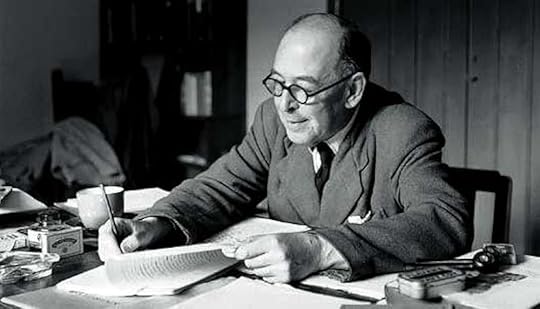
Home of both the ill-fated Titanic and DeLorean car, one might wonder what exactly Belfast is good at producing. Though, in fairness, the Titanic was captained by an Englishman, and the CEO of DeLorean was a charismatic American hustler. Well it turns out that we’re pretty good at birthing musicians (Van Morrison), poets (Seamus Heaney), and storytellers. This last category brings me to Belfast born C.S. Lewis.
Lewis was a type of Renaissance man equally at home writing novels, essays, poems, academic texts and popular religious apologetics. One of his greatest passions however was in sitting with friends discussing literary and philosophical ideas, particularly as they related to Christianity.
I’ve been spending the last couple of weeks immersed in his work (for reasons I’ll explain below), and have found it to be a rather strange and challenging experience. I’ve been deeply impressed by his prose, his counter-intuitive reversals, his fearless engagement with the latest philosophical and theological conversations, and his incisive takedowns of the latest intellectual fads.
While he was extremely popular in his day, he was a man ill at ease with his day. This was most apparent in his rejection of the common move in which a person would judge ancient literature against the latest thinking. For Lewis, the truly difficult, and life giving task, lay not in standing above our ancients, judging them by our standards, but precisely by sitting at their feet and humbly letting them judge our world by their standards. In doing so he felt that we would see our contemporary world in a different light, one that would expose some of its hidden problems and prejudices.
Perhaps what made him feel so relevant to so many lay in the fact that he was so at home in a different world, a foreign one that enabled him to perceive the weaknesses in our own. Indeed, he was not only able to live in an ancient world that spoke to our own, but was most famous for his ability to conjure up fantasy worlds that did the same.
Not that the experience of reading Lewis has been one of agreement. Lewis’ description of “mere Christianity,” often appears to me to be a very modern construct held together by many very modern presuppositions. I’ve found myself wanting to stop and question him multiple time, to challenge his ideas, engage with his thinking and debate with him.
Which brings me to the reason why I’m reading him so closely.
A few months ago, while sitting in the C.S. Lewis café in his native East Belfast, I had the idea of running a small four-day retreat that would explore his legacy, visit the places that meant the most to him, and involve fireside conversations reminiscent of his Inklings group. All occurring in and around the timeless comfort of the Old Inn – Lewis’ favourite hotel – located beside the forest that inspired Naria.
If there were enough interest in this idea I’d aim to run it in September/October of this year (otherwise I’ll look at 2017). If you have any interest in being part of this, drop me a line here.
February 15, 2016
Atheism for Lent
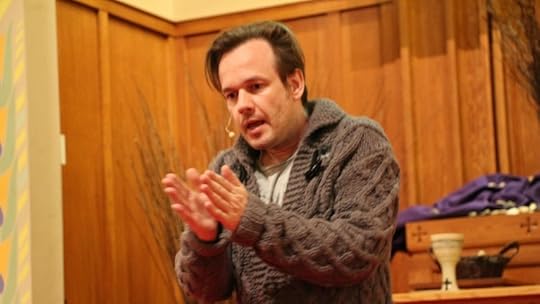
http://peterrollins.net/wp-content/uploads/2016/02/Speaking-at-Sunday-Service-copy.lite_.mp3
This is a talk I gave in LA at Sunday Service in which I introduce the concept of Atheism for Lent. You can find out more about the course, and sign up, here (don’t worry if you’re late to signing up, you still get all the material).
February 12, 2016
Everlasting Life and the Beginning of Theology

Everlasting life is not principally a theological question, but a medical one. It isn’t hard to imagine a day when corporations, who employ technicians – who in turn lean on the work of scientists – will find a way of extending life by fifty or a hundred years. The generation that gains this extra boost to the human lifespan need only cross their fingers and hope that, in the extra time allotted, these institutions will work out how to add on an extra hundred years or two.
It’s really pretty easy for us to imagine a point when technological progress outpaces the degeneration of bodies and minds. Combine that with the possibility of one day leaving planet Earth behind, or leaving all earth behind and existing as pure energy, and we start to see that death could one day effectively die.
Perhaps these descendants we are presently imagining, who would no doubt be very different from what we understand as human, will finally meet their end in a universe that expands out to the point of absolute entropy, or crunches back into an infinitesimal point. But, as far as our human understanding of time is concerned, this end would be inconceivable.
This is, of course, all still science fiction, but, as we gain greater insight into the universe and become better at applying our knowledge in the creation of new technologies, the things that were once science fiction often become science fact. Today, there are many in the scientific community who speak and write about a time when we shall be able to escape our earthly bodies and be reclothed in a heavenly form that does not suffer the ravages of time. It may well be that in the future the scientific community is actually able to cash some of the cheques that the clergy have been writing for millennia.
For many this marks the end of theology.
But for others it marks the beginning.
In the book I’m currently writing I’m going to explore this beginning.
February 8, 2016
Three and a half days just listening to YOU???
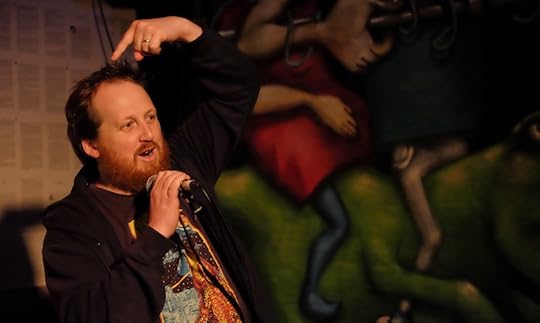
The brains behind my Wake festival is my good friend Adam Turkington. Adam is not only an amazing event organizer, but is brilliant about making sure that everyone has a good time. He wrote this little piece on my upcoming event that I thought I would share…
‘Three and a half days just listening to YOU???’
This was my response to Pete’s declaration to me that he was considering running a retreat in the depths of the Irish countryside.
‘So’ I continued ‘after spending all day wrestling with the meaning of existence and looking into the void they what? Hang out with some cows?’
I guess for some people that might sound idyllic, but I didn’t think it chimed with what little I knew of Pete’s writing and it certainly didn’t sound to me that attendees would see the Belfast that Pete and I grew up in. So I proceeded, lubricated by a couple of pints to lay out what I would do.
By way of introduction, I’ve been running arts events in Belfast for 20 years and I’ve known Pete for a good deal longer than that. When we started talking about this event I’d just finished working on a web designer conference called Build. Andy, who’s created Build, insisted that we never call it a conference – it was a festival with a conference element. There were workshops, music events and break out seminars which filled the days surrounding the conference element had very little to do with web design but they did provide new contexts and new ways of looking at the content that was explored in the formal sessions. I believe good conferences aren’t just about learning from the front, they’re about learning from each other, building community and exploring your role in that community. So I proposed, what if the event was city based, with music gigs and workshops and tours? What if we use my knowledge and contacts in Belfast to create a one-off experience of unusual venues, inspirational artists and experiences no tourists ever get? So for the last four years we’ve been running the event and the feedback from the people who come has been just brilliant. It’s become one of my favourite weeks of the year because I get to show off the city I love. You get to see the stuff you never see in the glossy mags, the stuff the tourist board never tells you about, the vibrant underbelly of Belfast where Pete and I grew up.
This year will be no exception. We’ll be starting with a beer tour, we have workshops in Magic and Leather craft and a performance from Hip Hop and spoken word artist Jun Tzu. Every year is different and every year we get a little bit better at it. We change enough to keep it interesting for those who return every year but at the core it remains about the ideas in Pete’s writing and creating space for people to examine the ideas and how they impact on them individually and collectively.
But the truth is, and this is where I am the expert, great events are not about the constituent parts. That’s part of it sure, but what makes events come alive is an attention to detail that comes from a clear ideological spine informing all aspects of what goes on – basically it’s about creating the vibe.
People always ask me what I think of Pete’s work and I always say (truthfully) that I’ve never read any of it. But I know Pete, I know the ideas behind his work and I know this city like the back of my hand. I don’t need to know Pete’s work, that’s Pete’s job. My job is to make sure you leave Belfast having had the space to think about life changing ideas and having enjoyed four days worth of once in a lifetime experiences.
So I’ll see you in April.
Adam
Sunday Service, LA, CA
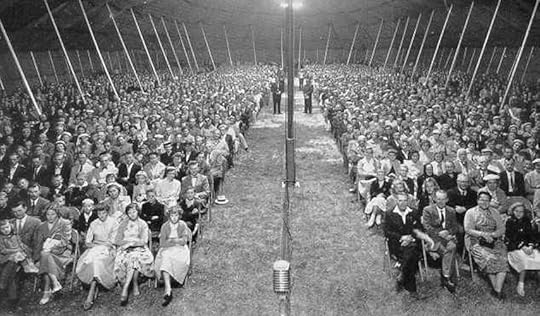
Over Lent Barry and I will be connecting with my online Atheism for Lent course by preaching on some of the materials. I’ll be kicking off the series with an introduction to the idea, and some reflections on the critique of religion. The service will take place at 11:45 at 343 S Church Lane, LA.
Atheism for Lent as a Political Act
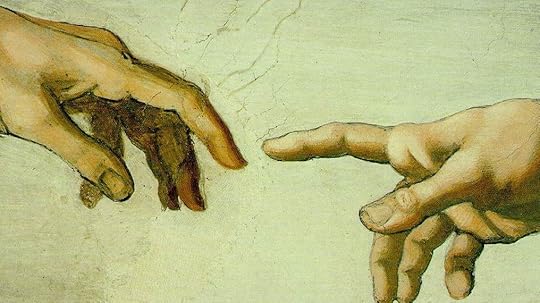
Recently I’ve been posting about some of the thinkers we’ll be looking at during Atheism for Lent. But today I wanted to take a break from that and offer you some background to the idea.
I began the course in 1998 after reading the book Suspicion and Faith by Merold Wespthal. In it he crosses back and forth over the traditional battle lines drawn up between theists and atheists and shows how people within the church can love and learn from the great “Masters of Suspicion.” Indeed the book offered a challenge to carefully read Feuerbach, Marx, Freud and Nietzsche over Lent as a practice of purification.
While I enjoyed the ideas in the book, my interest in it wasn’t academic, it was political. Suspicion and Faith happened to be published the same year that The Troubles officially came to an end, a co-incidence that sparked an idea.
To give a little background, “The Troubles” refers to the 30 year conflict in Northern Ireland that began in the late 60’s and ended with the signing of the Good Friday Agreement in 1998. During that time 3,500 people were killed, which, considering the population, ensured that everyone was directly impacted by the stink of death. On top of that thousands more were maimed, others disappeared, businesses were destroyed and paramilitaries operated in the open. In addition to this bomb scares and checkpoints formed the backdrop to daily life. During the conflict 25 peace walls were erected, covering over 20 miles (with another 75 installed after the Good Friday Agreement), and many areas became enclaves where the police couldn’t enter without military backup.
The relationship between religion and the violence in N.I. is a complex one, but a key element in the peace process involved helping people encounter those who they considered other, alien, and toxic. With that in mind a few of us created The Last Supper, The Evangelism Project, The Omega Course and Atheism for Lent.
In different ways, each of these events were designed to help people work through the negative elements of their religious heritage, become more open to otherness, and embrace the value of self critique.
Atheism for Lent concentrated on the latter. Through it we encouraged individuals and communities to seriously engage in the material of those they were brought up to believe were enemies of faith, evil and without merit. This act of careful reading and self-reflection was not designed simply to facilitate a healthier form of life for individuals, but also for whole communities.
Since then, Atheism for Lent has grown to the point where it engages people all over the globe who welcome engagement with other worlds (with a particular interest coming from South Africa).
Over the last few weeks I’ve been blown away by the interest the course has generated. It is evidence that, contrary to what we might fear, many people are courageously willing to cross boundaries, encounter difference and have their worldview challenged. Personally witnessing how many people are part of this experiment, it gives me reason to hope.
Wake: An Adventure in Transformance Art
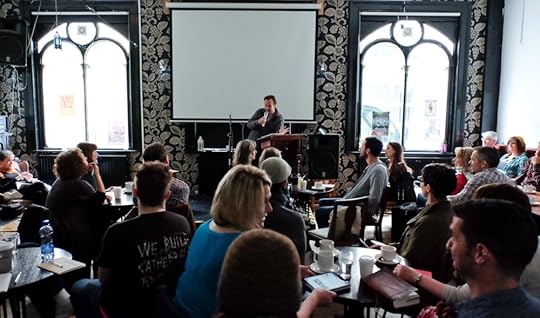
Throughout the year I get to meet amazing people who live in beautiful cities and who are part of dynamic communities. I get to talk and conspire with them about everything from the personal to the political in the places they call home. But once a year I get to turn the tables. Once a year I invite people to come and spend time with me in the land that I call home. The place where my ideas were forged and where my vision crystallized.
Each year I put out an invitation for 40 people to take this pilgrimage with me at the end of April. To spend four magical days with me in a magical land. Sharing life, learning together, and socializing (actually, six days if you include the pre-event get-together and the post-event Festival of Fools).
Taking place in the cultural heart of N.Ireland and spread over multiple bars, cafes and galleries, all connected via a few interconnected cobbled streets; this festival fosters a rich community experience by blending together musicians, poets, parties, tours, storytelling, whiskey tasting, workshops, movies and more. It’s hard to describe exactly what goes on, and nothing I write will do it justice. But I can say that it’s been a life transforming event for many of those who attend.
I’m passionate about my work and love all the experiences it has opened up. But out of everything I do, this festival is the unfailing highlight. It not only allows me to speak more personally and talk more deeply, but it enables me to give a platform to some of the most important and influential people in my life.
The whole festival is a type of Transformance Art event involving magicians, musicians, politicians, peacemakers, poets, activists, artists, writers, therapists and filmmakers.
So, if you’ve ever wanted to visit Ireland, to see the birthplace of C.S. Lewis, and the Titanic, to have a holiday that not only revives the body, but nourishes the soul and feeds the mind, then sign up now for one of the few remaining tickets.
Below is a video from the last event.
You can see pictures from last years event here.
Peter Rollins's Blog
- Peter Rollins's profile
- 314 followers


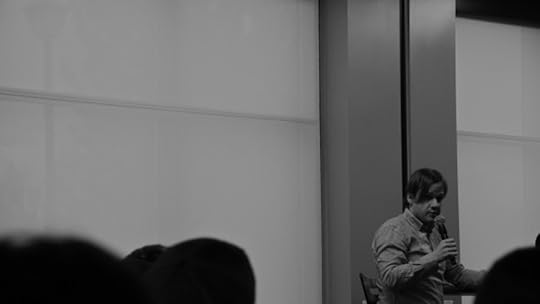 I’ll be returning to Mars Hill to give a sermon.
I’ll be returning to Mars Hill to give a sermon. 
